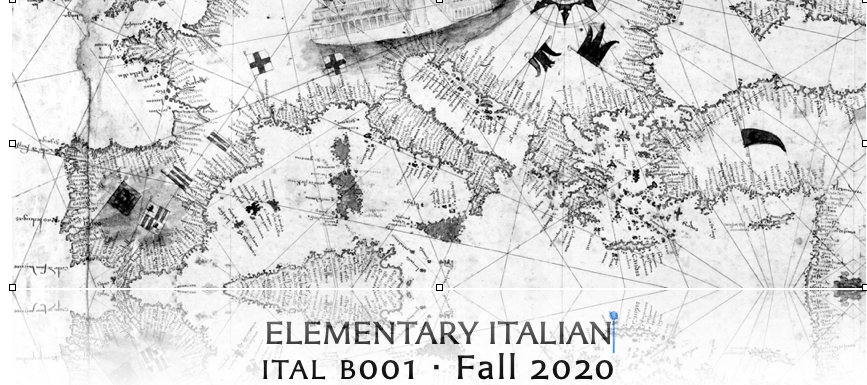
Zoom Link: https://brynmawr-edu.zoom.us/j/94760557951
Link to schedule an appointment: https://calendly.com/cbenetollo/office-hours
Zoom link for my office hours: https://brynmawr-edu.zoom.us/j/91563805287
Link to schedule an appointment: https://calendly.com/cbenetollo/office-hours
Zoom link for my office hours: https://brynmawr-edu.zoom.us/j/91563805287
- Instructor of record: Chiara Benetollo
- Instructor of record: Angelina Marsella
- Instructor of record: Gabriella Troncelliti

Zoom link: https://brynmawr-edu.zoom.us/j/94760557951
Link to schedule an appointment: https://calendly.com/cbenetollo/office-hours
Zoom link for my office hours: https://brynmawr-edu.zoom.us/j/91563805287
Link to schedule an appointment: https://calendly.com/cbenetollo/office-hours
Zoom link for my office hours: https://brynmawr-edu.zoom.us/j/91563805287
- Instructor of record: Chiara Benetollo
- Instructor of record: Angelina Marsella
- Instructor of record: Gabriella Troncelliti
- Instructor of record: Elise De Biasio
- Instructor of record: Roberta Ricci
- Instructor of record: Emma Schechter
- Instructor of record: Angelina Marsella
- Instructor of record: Amelia McDonnell
- Instructor of record: Roberta Ricci
- Instructor of record: Abhi Suresh

This seminar approaches the two most studied phases of Italian history, the Renaissance and the 20th century, by placing what we call 'otherness' at the center of the picture rather than at its supposed margins. The main aim is to challenge traditional accounts of Italian culture, and to look at pivotal events and phenomena (the rise of Humanism, the rise of fascism, courtly culture, the two World Wars, 16th century art, futurism) from the point of view of Black, Queer, and Jewish protagonists, authors, and fictional characters. Our theoretical bedrock will be offered by modern and contemporary thinkers such as Fred Moten, Edouard Glissant, Eve K. Sedgwick, and Hannah Arendt. Our primary sources will come from cultural epicenters of Renaissance, Baroque, and late Modern Italy, such as Leo X papal court, fascist Ferrara, 17th century Venice, and colonial Libya. In class, we will adopt a trans-historical, intersectional, and interdisciplinary perspective inspired by Fred Moten's work, which will serve as the poetic common ground for our investigations. Themes and issues will be analyzed at the crossing of the two historical phases and of the three topics in exam, and the material will include historical and theoretical analyses, narrative texts, poems, films, and visual art.
Whether you will attend it in a classroom or by connecting through zoom, this class is designed as a collaborative seminar. It includes short lectures by students, small-group activities, class-wide discussions, and interactive lecturing by the instructor. Its main goal is to undermine traditional narratives about what we call ‘the High Renaissance’ and the Italian culture of the 20th century.
This is not a normal semester and we should not pretend otherwise. I will do my best to be flexible and accomodate the needs generated by the evolving covid emergency. However, I am not able to anticipate all the problems specific to each participant’s situation. If my expectations or the resources that I provide are not compatible with what you are going through, please let me know.
Whether you will attend it in a classroom or by connecting through zoom, this class is designed as a collaborative seminar. It includes short lectures by students, small-group activities, class-wide discussions, and interactive lecturing by the instructor. Its main goal is to undermine traditional narratives about what we call ‘the High Renaissance’ and the Italian culture of the 20th century.
This is not a normal semester and we should not pretend otherwise. I will do my best to be flexible and accomodate the needs generated by the evolving covid emergency. However, I am not able to anticipate all the problems specific to each participant’s situation. If my expectations or the resources that I provide are not compatible with what you are going through, please let me know.
- Instructor of record: Alessandro Giammei
- Instructor of record: Roberta Ricci
- Instructor of record: Roberta Ricci
- Instructor of record: Alessandro Giammei
